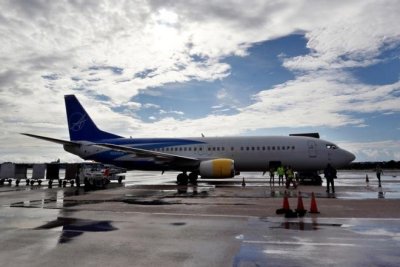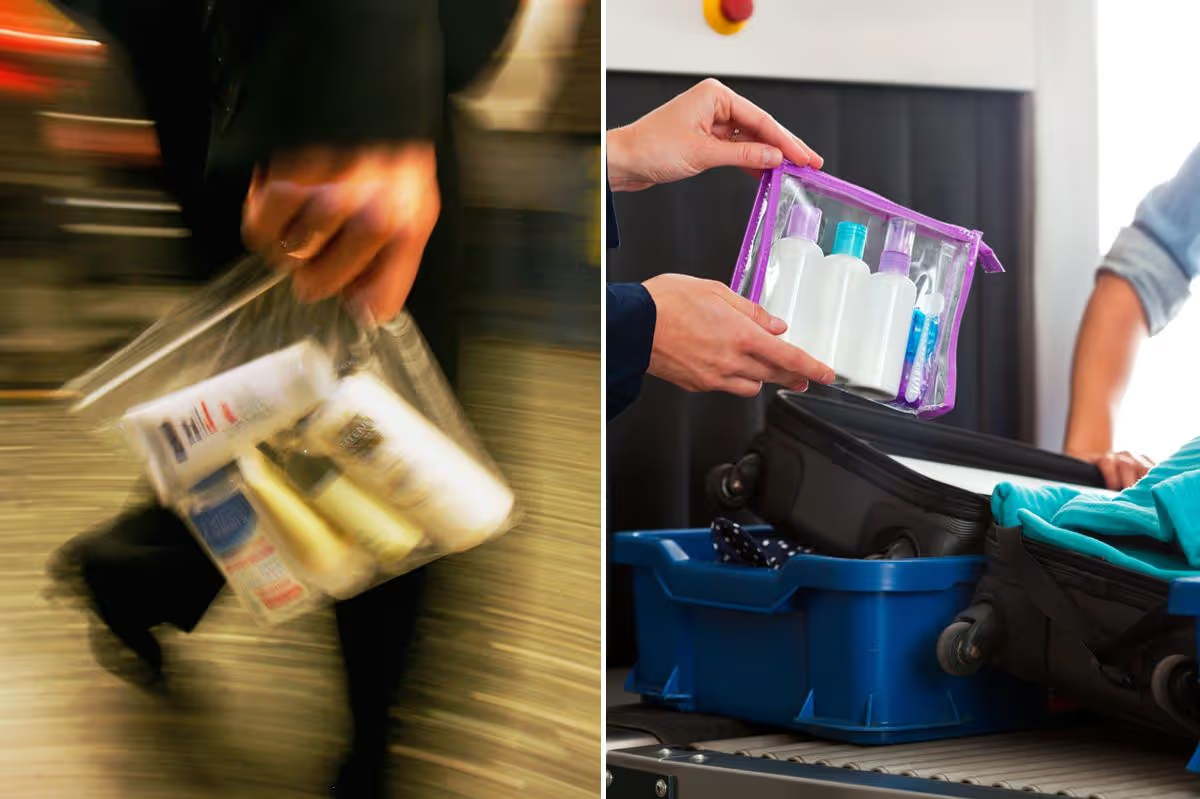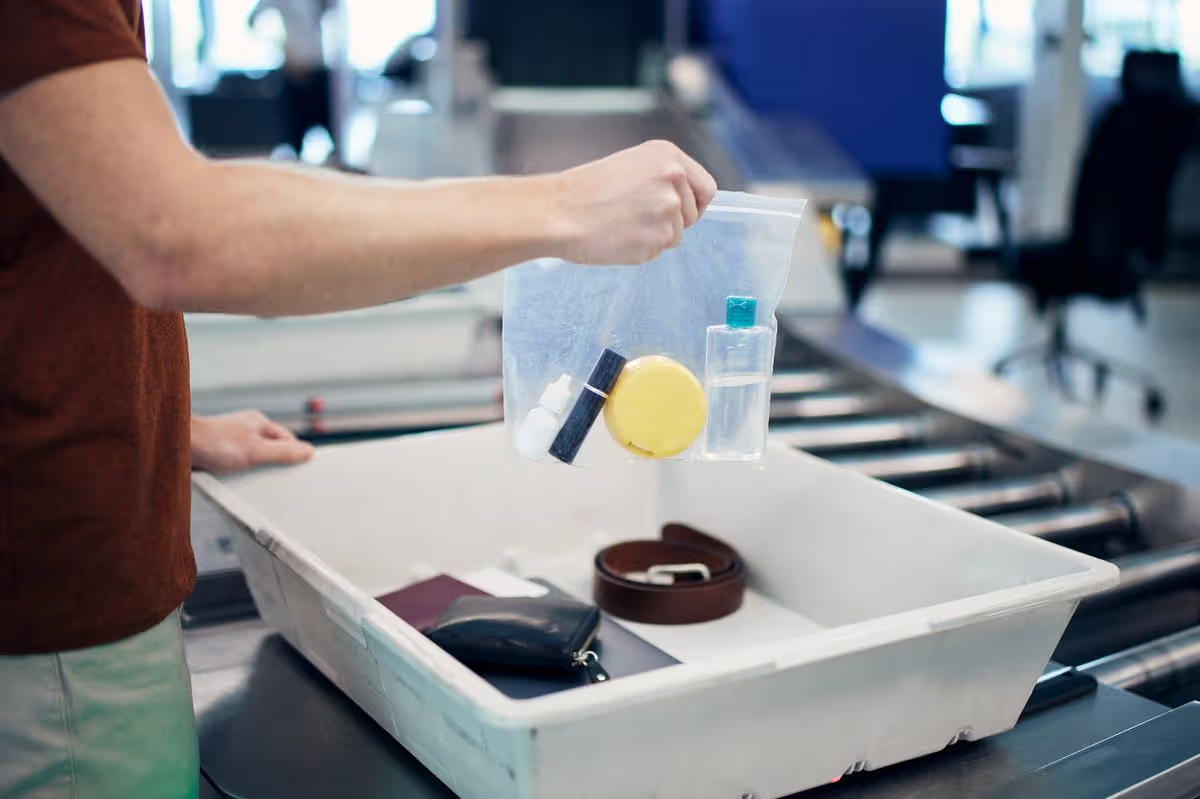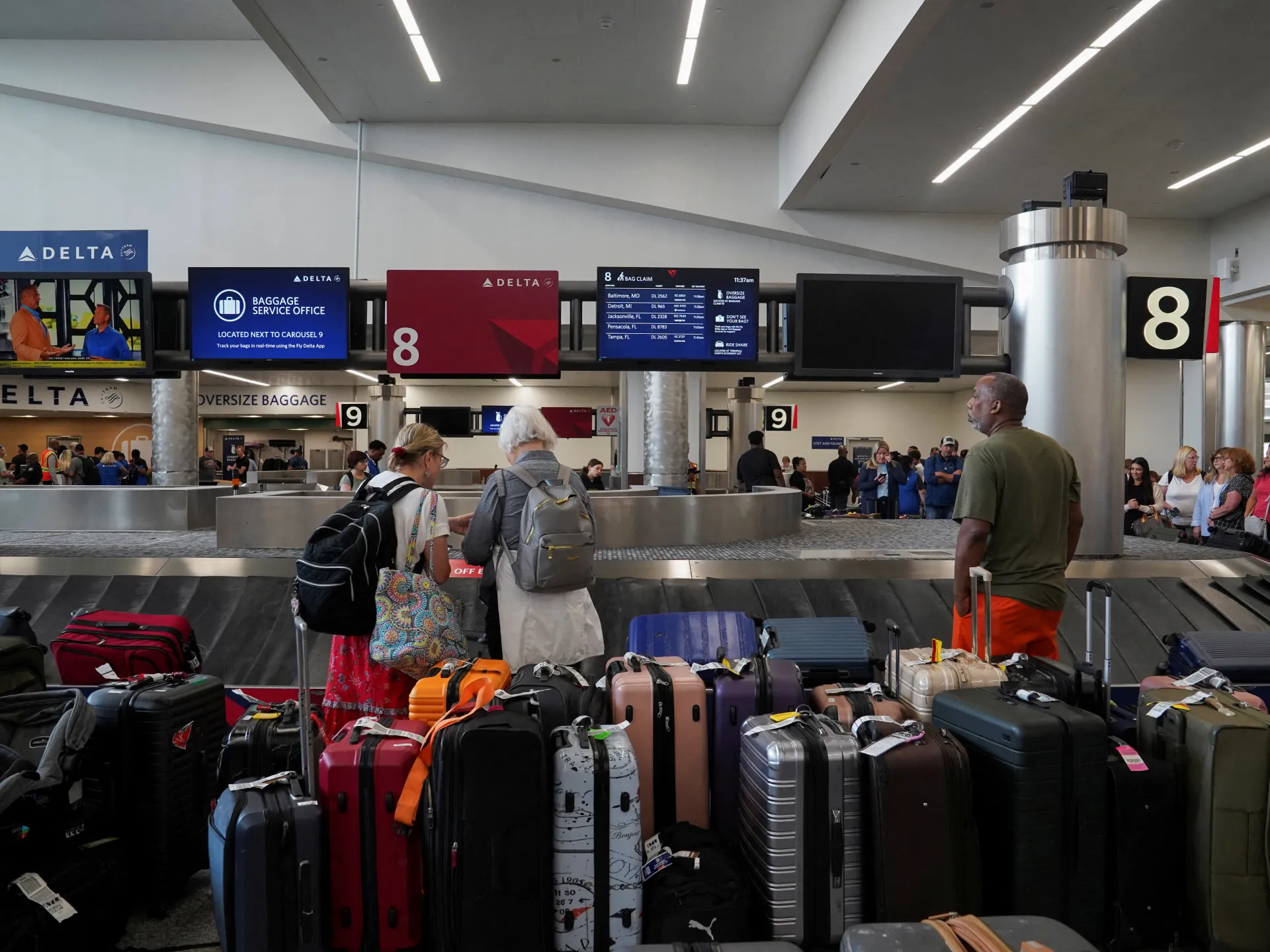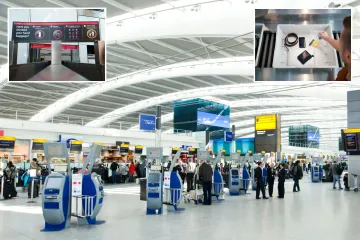Regulations surrounding the carriage of liquids on aircrafts have changed and there are two main alterations to the 100ml rule at UK airports.
Regulations surrounding carrying liquids at airports have been changing recently and it’s important to know where you stand because different airports have different rules.
Multiple British airports have relaxed the stringent 100ml liquid restriction, with Britain’s busiest airport, London Heathrow, the latest to confirm the significant update on January 23, 2026. The modification has been made possible through newly installed computed tomography (CT) scanners which give security personnel detailed 3D imagery of luggage, enabling passengers to keep liquids of up to two litres in their bags during security checks.
This recent development at Heathrow represents the final stage of its £1 billion security transformation that’s been underway over recent years. Furthermore, travellers no longer need to take out laptops, tablets, and liquids from their hand luggage at Heathrow, where the advanced scanners are now in operation.
A statement released by Heathrow on the same day said: “Passengers travelling through all terminals at Heathrow no longer need to remove liquids or electronics from their hand luggage, or juggle plastic bags at security. The UK’s hub has become the largest airport in the world to fully roll out next-generation CT (computed tomography) security scanners – a move that promises faster queues, less stress and a smoother start to journeys for millions of travellers.”
These new rules for carrying liquids at UK airports began to take effect on July 17, 2025. The two main changes mean:
- Travellers can now carry up to two litres in their hand luggage
- Passengers no longer need to separate them into a clear plastic bag when passing through security.
All UK airports, including Heathrow, were mandated to install new CT scanners by summer 2025, enabling passengers to carry up to two litres of liquids in their cabin bags and keep all electronic devices in their hand luggage. However, not all airports have made the changes in that timeframe.
In fact, 2019 saw Boris Johnson vow that the liquid rules at major UK airports would ease by 2022, which would allow passengers to carry larger quantities. Rishi Sunak’s government then extended that deadline to June 1, 2024.
From summer 2025 onwards, individual airports that pass Department for Transport (DfT) inspections have been permitted to ease the 100ml restriction.
UK airports that have ditched the 100ml rule
- Belfast International
- Belfast City
- Birmingham
- Bristol
- Edinburgh
- London Gatwick
- London Heathrow
The switch hasn’t been rolled out at every UK airport, with some still enforcing the 100ml limit or less. Certain airports also require liquids to be taken out and placed in a clear plastic bag during security checks.
UK airports that still require you to remove liquids over 100ml
- Aberdeen
- Bournemouth
- Cardiff
- East Midlands
- Glasgow International
- Glasgow Prestwick
- Inverness
- Isle of Man
- Leeds Bradford
- Liverpool
- Luton
- London City Airport
- Manchester
- Newcastle
- Newquay
- Norwich
- Southampton
- Southend
- Stansted
- Teesside
Exemptions apply for essential medicines, baby food or milk, and special dietary requirements.
It’s crucial to verify your airport’s requirements before travelling, especially ahead of the February half-term, to prevent delays or having liquid items seized at security.
A spokesperson for the Department for Transport said: “Airports are responsible for the installation and operation of security equipment. Passengers should continue to check security requirements with airports before they travel and come prepared with liquids in containers no larger than 100ml in hand baggage unless advised otherwise.”
Why did the 100ml liquid ban come into force?
The 100ml liquid ban and other rules surrounding liquids in airports were introduced worldwide almost overnight, in August 2006. The aviation sector and travellers woke up to the news that airport authorities had foiled an attempted terrorist conspiracy to destroy transatlantic flights travelling from Heathrow to North America.
The suspects allegedly planned to smuggle the components for homemade explosive devices onto multiple aircrafts, which would be concealed in soft drink bottles. While a massive tragedy was stopped from occurring in 2006, it also meant that the aviation industry was changed forever.
Full list of items you can’t take through UK security
- Bleach
- Catapults
- Compressed gas
- Corrosives
- Creosote, quicklime, oiled paper
- Crossbows
- Darts
- Diving equipment – check with your airline
- Explosives ammunition, detonators and related equipment
- Firearms (including replicas)
- Fireworks and pyrotechnics
- Flammables (fire lighter, lighter fuel, paints, thinners)
- Golf clubs
- Harpoon or spear guns
- Heavy bats and sticks (including baseball, softball and cricket bats)
- Ignitable gas devices
- Incapacitating sprays
- Infectious substances (e.g. live virus materials)
- Instruments containing magnets
- Liquids and gels – with certain restrictions
- Magnetrons. Instruments containing mercury
- Martial arts equipment (including knuckledusters, clubs, coshes, rice flails and nunchuks)
- Non-safety matches
- Oxidisers
- Poisons, arsenic, cyanide, weedkiller
- Radioactive materials, acids, corrosives, alkalis, caustic soda
- Sharp items (including scissors with blades over six inches)
- Smoke canisters and smoke cartridges
- Toxic
- Vehicle fuel system components which have contained fuel
- Walking / hiking poles
- Wet-cell car batteries
